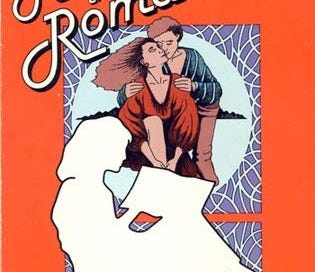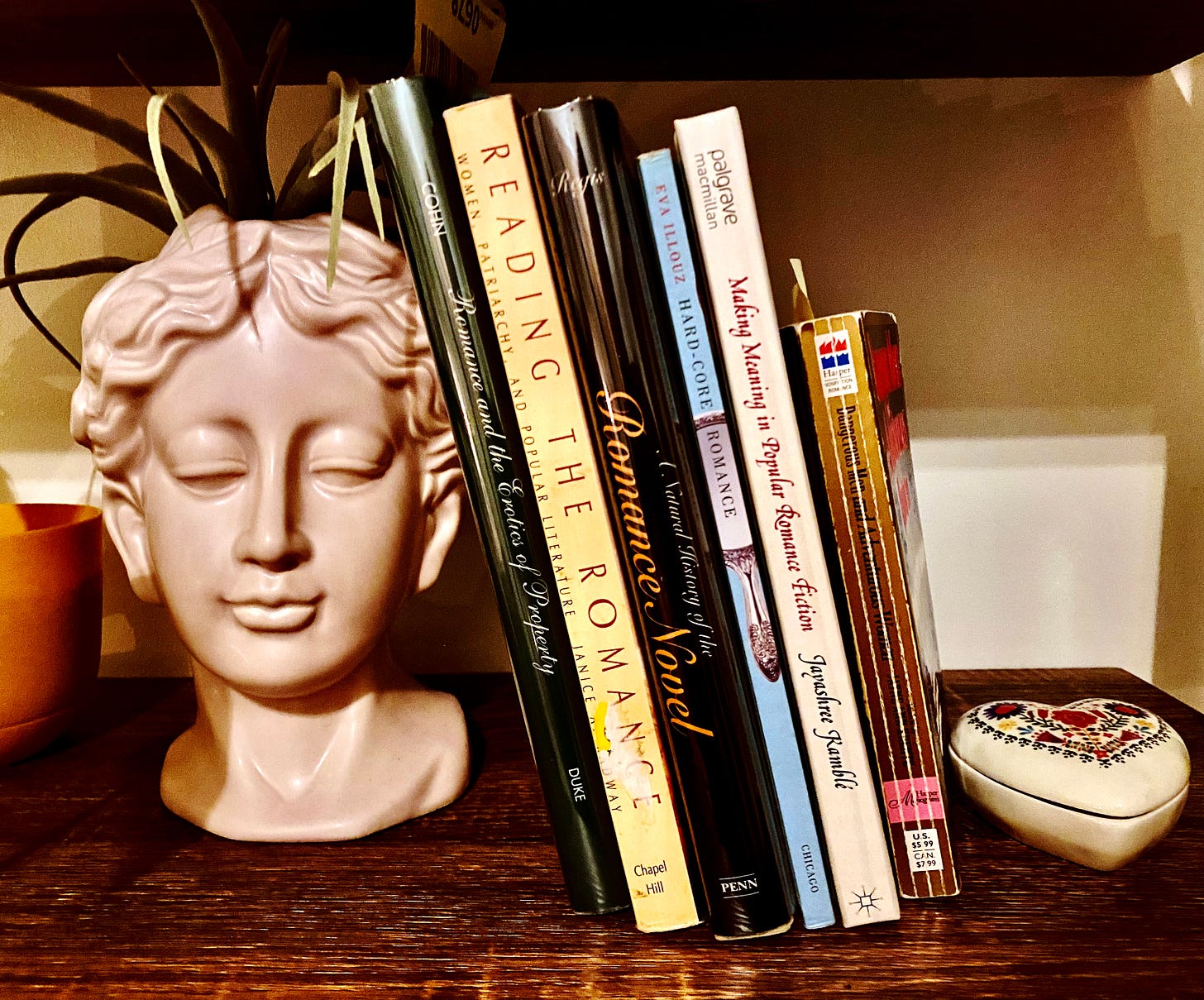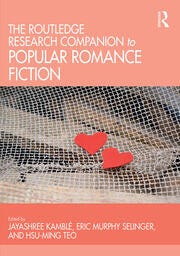The Romance Reader's Guide to Romance Scholarship: Part 1
A guide for romance nerds who want to nerd out even harder
I read my first book on romance scholarship at the age of 19, and it was a disaster.
The book was Reading the Romance, Janice Radway’s groundbreaking and quite famous 1984 ethnography of romance readers.
Not that I knew it was an ethnography: I had no idea what it was or how to decipher it.
When I flipped through the pages, it was disorienting to know I was reading English (my mother tongue) yet I was unable to comprehend the meaning of the words in the dense, jargon-packed paragraphs.
The survey that Radway gave to her study participants was the one section that I confidently understood.
My professor was no help in guiding me through Radway’s text or helping me find other scholarly sources, and so my 20-page research paper on Dreaming of You by Lisa Kleypas (which argued that actually romance novels ARE feminist [I weep]), was a bit underbaked.1
Romance scholarship can be intimidating without a guide
I certainly found romance scholarship intimidating, and maybe you do, too.
After 1.5 classes where I learned some literary theory, my undergraduate education focused on the practical side of communication. I never took an American or Cultural Studies class, Psychology and Sociology never graced my transcript… you get the picture.
It took another 15 years before I tried romance scholarship again.
A few years ago, I very cleverly started a romance novel podcast and so I was able to interview romance scholars and get them to explain some things to me. That helped me build the momentum I needed to really get going.
Quite simply: I needed guides who could provide context in order to orient myself in any of the research.
Why is it so hard to get started with romance scholarship?
A huge barrier to entry with romance scholarship results from the citational and referential nature of academic texts.
It always seemed like you had to have already read 30 books before you could understand the point of an argument.
In my opinion, it’s very hard to get value from just one romance scholarship text.
It’s more like you need to immerse yourself in it for a bit without hoping to understand everything, let yourself get through a few, and then the ideas start to crystallize the more you read.
But how do you get through the frustrating experience of those first few texts without throwing in the towel? Even the nerdiest romance reader may find themselves questioning why they’d continue doing this as a hobby…which is supposed to be fun (?).
[It is occurring to me that I’m not doing a great job selling the idea that you should read romance scholarship. Please bear with me! I want to acknowledge that it’s a perfectly normal learning curve, but I promise it’s worth it!]
A Very Good Place To Start: Romance Scholarship 101
If I haven’t scared you off yet, let’s wade in to the water.
First up, I recommend you start with the romance scholar conversations I mentioned earlier, rather than with scholarly texts.
Your primary goal at this stage is to get comfortable and start to explore the different approaches. They won’t all resonate with you, so pay attention to the ideas that make your ears perk up and which ones feel like a job you’d never want to take.
This is basically the Romance Scholarship Starter Pack trilogy and provides a ton of context and basic Q&A about romance scholarship.
I’d recommend you consume them (in audio or via transcript) in the order I recorded them:
063. The Three Waves of Romance with Eric Selinger
Romance scholar Eric Selinger explores different types questions that have been asked about popular romance (not enough), how romance research has come in waves (three, to be precise), and asks "how can I make this romance more interesting?" (you always can).
060. Romance Research with Jayashree Kamble
Jayashree Kamble, a romance scholar and Vice President2 of the International Association for the Study of Popular Romance, joins me to discuss the various ways romance can be studied. She gives a brief overview of the history of the romance genre and pop culture research, why she doesn't encounter the hierarchy of taste when teaching romance, and explains who romance scholarship is for.
058. East Asian American Romances with Cultural Historian Hsu-Ming Teo
Hsu-Ming Teo, a cultural historian and romance scholar, joins me to discuss her research on cultural authenticity in East Asian American romance novels, among many other fascinating topics such as love as a commodity, intimacy, Australian convict romances, historical accuracy, and why impact still rules, but intent may matter more than we think. We also discuss novels by Ruby Lang, Courtney Milan, Helen Hoang, and Jeannie Lin.
This trio of episodes was centered on the publication of The Routledge Research Companion to Popular Romance Fiction when it came out in 2020, and my guests were the editors of the volume.3
At the end of this post, I’ll include links to a ton of other “scholarly” episodes for further listening & reading.
In my humble opinion, podcasts are a great low-investment way to explore what’s out there with romance scholarship and start to get a feel for the topics and approaches where you want to go deeper.
Romance Readers are Welcome in Romance Scholarship
I may not be an academic, but I have infiltrated the totally welcoming community of romance scholars over the past few years and now consider myself to be an “Independent Scholar.”
I did such a good job of blending in that now I am the Secretary for the International Association for the Study of Popular Romance, aka “IASPR,” which is the organization that also publishes the (totally free to read, open access) Journal of Popular Romance Studies (JPRS).
A very cool thing that is happening very soon is the semi-annual IASPR Conference, which will be virtual and in Birmingham, UK June 28-30, 2023.
If you are romance scholarship curious, this is another great way to dip your toes into the water. At a conference like this, you get exposed to ideas from a huge range of scholars at different stages who present 10-15 minute “papers”4 on a topic they’ve pitched.
You can join from anywhere in the world, and registered attendees get access to the recordings after the live event. That means you can enjoy the panels even if the hours of the live event conflict with work/life.
Register before 5/31/23 for the best rates!5
Next Up: Romance Scholarship 102
In romance scholarship 102, I’ll recommend some books and articles that are great starters for the romance scholarship curious romance nerd!
Let me know what topics you’d like added to the syllabus - I’d love to hear your questions and to learn what YOU’RE curious about.
A Longer but Non-Comprehensive List of Conversations about Romance Scholarship and Scholarly-ish Conversations:
052. The Modern Romance Canon with Dr. Eric Selinger and Kat Jackson (aka Dr. Nicole Jackson)
The great debate about canons (the literary kind, not the ones that go boom)
058. East Asian American Romances with Cultural Historian Hsu-Ming Teo
Cultural Historian approach
062. Transculturalism & Wuxia in My Beautiful Enemy by Sherry Thomas with Dr. Jayashree Kamble
Romance scholarship in action
073. Structuring Romance: The Secular Scripture pt 1 with Dr. Angela Toscano
074. Ma'am, this is Problematic: The Secular Scripture pt 2 with Dr. Angela Toscano
2-parter on structuralist approach
082. Critical Reading as Liberation from Mimicry of the Powerful with Dr. Julie Moody-Freedman, host of Black romance Podcast
Cultural Studies! Black Romance!
091. Guilty Pleasures with Dr. Arielle Zibrak
Unpacking the idea of a guilty pleasure
098. How To Catch A Man on the Love Train with Steve Ammidown
Romance History - Where the Heart Roams, a 1987 documentary about romance authors
112. Time Travel Romance: A Fantasy Escape to a Glorious Space with Dr. Huike Wen
Time Travel Romance in Chinese Television
120. Queer Romance: A History with Lucy Hargrave
Queer Romance!
125. Only Tingles Before Marriage: Junior Novels in Post-War America with Dr. Amanda K. Allen
“Young Adult” romance!
126. Hairy on the Inside: Teen Werewolves & Red Riding Hood with Dr. Nicola Welsh-Burke
Young Adult Paranormal/Fairy-Tale Inspired Romance
—
At some point I started getting more consistent about using “Dr.” in front of people’s names. Pobody’s Nerfect.
I attempted to redeem my juvenile scholarly work on Dreaming of You by doing a much deeper dive with Dame Jodie Slaughter, in which we decide DoY could use a more feminist retelling by liberating Joyce. See episode 140: Dreaming of You: Justice for Joyce
Now President of IASPR!
Boy, I wish this book existed back when I was 19. It’s a very accessible text, although the price to get a copy of your own is a bit steep - $50+ for paperback or eBook, and $260+ for hardcover. Check to see if you can get access via a library!
The “papers” is in “ “ because I find it silly that they’re called papers when they’re oral presentations. This is one of those academic norms that still doesn’t make sense to me.
Did I mention I am also the temporary Communication Chair of IASPR?








